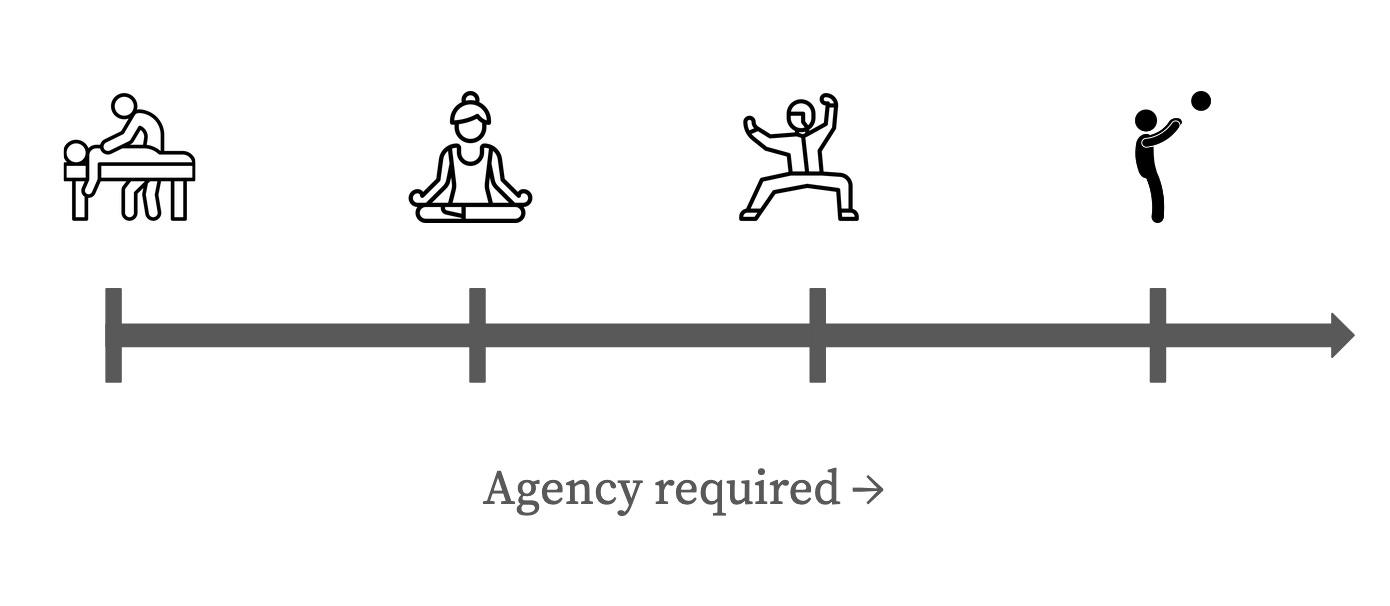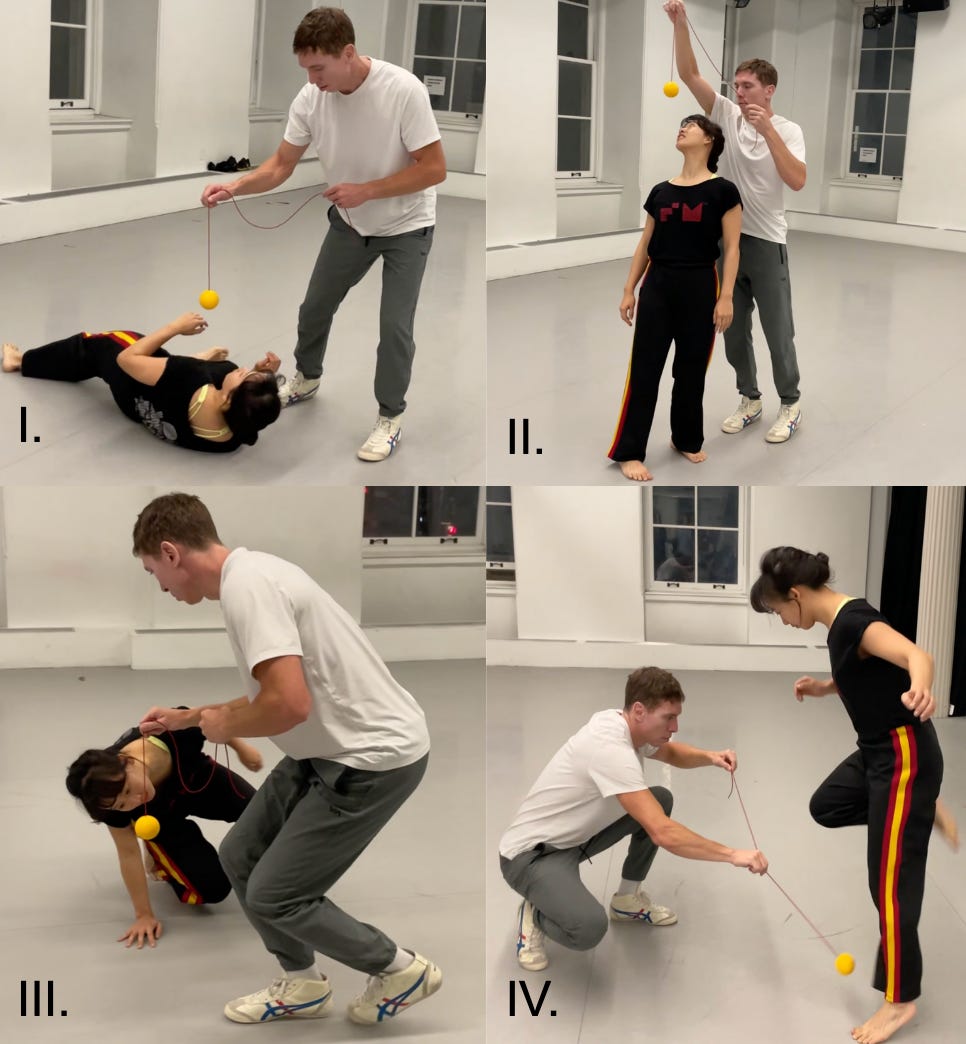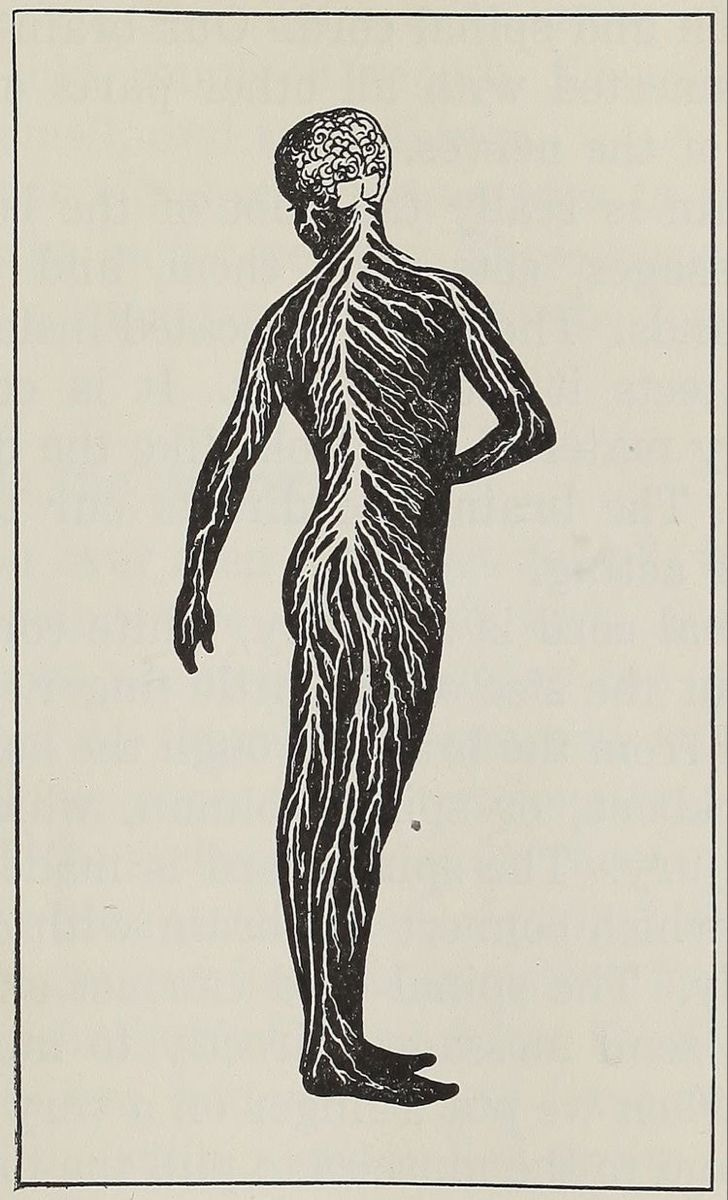Health is agency
[Updated] How healthy you are depends on how well your selves pursue goals
Note: this is an updated informal essay from a preprint that I put out in collaboration with Jozef Frucek. You can read the full version here.
I suspect more people would be shocked if they realized that the medical community as a whole does not have a clear and satisfying definition for health. At least, not one that most people would be satisfied by. Depending on who you ask, health is whether you are free from a list of symptoms (whether the DSM IV or the ICD), conform to the current population in a range of measurable parameters, and/or "well-being", whatever that means.
This is a problem at an institutional level (research around a bad goal can be worse than useless) but also at a personal level (“my annual checkup shows I’m healthy, but I can’t articulate why I don’t feel healthy”).
I want to propose a different way to think about health.
We contain many parts. To the extent that these parts (cells, organs, organs systems) can be said to have goals and solve problems, we can refer to them as ‘agents’.
In this view, a person is not a monolithic thing with the twofold aim of staying alive and reproducing, But a complex composite of ‘sub-agents’ (because they are below us in scale) at different scales. These different agents solve problems in different spaces. When you walk into a bar, your parietal cortex helps solve problems in 3D space. When down a third shot of tequila, your liver adjusts blood flow to prepare the kidneys for increased filtration, solving problems in physiological space. When the cells in your liver produce the enzyme for processing alcohol, they solve problems in transcriptional space.

Now we can take on board the notion of health as agency: the ability of a person’s subagents to solve problems in different spaces over their lifetime. For someone with type 1 diabetes, their pancreatic cells have lost the ability to solve the crucial problem of regulating glucose. Someone with depression can be understood as having diminished capacity to solve problems in emotional and motivational space. Conversely, we can say that a musician is meaningfully healthier when she is able to express her musical ideas more fluidly.
Notice a few things when you frame health like this:
Health is tied to agency. Rather than being about something you have, it’s about what you (and your subagents) can do. It also depends on what you care about.
Health requires context. Sickle cell anemia can be healthy if you live in a place with high rates of malaria. Yet most humans in the developed world inhabit largely similar problem spaces. We live at similar concentrations of atmospheric oxygen, do broadly similar physical activities (sleep, walk, run).
I like this notion of health because it acknowledges that health isn’t some objective property I have, but rather arises in interaction between me and the problem solving spaces I care about. I am empowered to clarify what health is for me.
For people experiencing chronic pain, especially those who have been told by their doctors that they are ‘healthy’, viewing health as agency naturally invites us both to consider what they care about, and how they can develop the agency to get there.
Taking this notion of health more seriously I suspect would inspire much more creative action in the world of ‘health’, which tends to feel intellectually sclerotic.
Okay, but what can you actually do with this?
Now you can understand activity as on some axis of complexity for a given space. At one end is something like massage where you are basically passively receiving treatment. On the other end is complex situation where the environment is changing and you are having to rapidly solve novel problems (e.g. a new variant of basketball).
You can move up and down the axis depending on your capacity at any given moment. If you’re an athletic basketball player, it may well be rich to enter a different problem space and see how you can adapt to, say, salsa dancing. If you have shattered your L4 spinal vertebra, you’ll want to be exploring perhaps more of the interoceptive space.

It also happens that a movement teacher of mine has taken great inspiration from the idea of health as agency and created a practice (which he calls Fighting Monkey) that deliberately put you at the edge of your problem solving ability. Here are two examples below


In each case, you can take a task like ‘fold at your hips keeping your arms overhead’ or ‘watch this practice ball’ and start to vary the parameters of the task so they require more agency.
The art here is to be adding complexity in a novel and interesting dimension. Rather than just ‘adding weight’ or ‘making it faster’, there’s a component of meaning behind the actions that resists turning into a straightforward formula.
Here at Debug Your Pain, I’m most interested in how this type of perspective can scaffold us out of persistent pain.
Our interventions depend on our conceptions of health. There’s a lot of health crises nowadays, and my hope is that this conceptual lens can help address address not only dis-ease but bring us into the beautiful complexity and meaning of the human experience.
Thank you to Jozef Frucek for mentorship and collaboration on the paper that serves as the inspiration for this essay. See Beyond Biomechanics: Fighting Monkey and the Enactive Inference Approach to Health and Movement.
This is largely built off Michael Levin’s notion of nested agents, articulated in his Technological Approach to Mind Everywhere




thank you, very interesting!